I’ve been an anime fan long enough to remember when Thursday was the day for high-quality anime, more often than not. Partly that was due to NoitaminA being a lock for one really good show per season, and often two – and it was usually joined by a few others, too. That hasn’t been the case in the last few years – NoitaminA has declined precipitously in quality and never offers two shows per schedule these days, and the balance of power seems to have shifted to the weekend. Not so this winter, though – it’s Throwback Thursday, and I’m loving it.
I’ve enjoyed both Koi wa Ameagari no You ni and Miira no Kaikata all season, but this week was a particular knockout – both delivered superb episodes that highlighted what makes them such good series. And I’m at the point now where I’m pretty close to calling Koi wa Ameagari a great one, because the awkwardness of the premise seems pretty much irrelevant at this point. This show is just brilliant, plain and simple – it’s a pleasure to watch a great anime director adapt this material, and unless we see a serious slip-up in the final three eps (which is still possible, given the risky nature of the material) this is surely the best NoitaminA show since The Great Passage (and potentially, even longer).
I know I’ve harped on the brilliance of Wanatabe Ayumu, but I just want to touch on a couple of specific issues that really point to his greatness as a director. First off, the little details – like the brother in Episode 6, or the bit at the end where Akira blew her hair out of her eyes this week. There’s no need for that to be here – no one would miss it if it were gone. But it adds so much color, so much realism, so much connection. And then there’s pacing. Watanabe-sensei understands (and this was really on display in a show like Nazo no Kanojo X, too) that each episode should work like a little movie in itself. The B-parts of Watanabe eps are almost always better than the A-parts – he builds something for the course of the entire 22 minutes, and finishes with an impactful crescendo.
There’s an awful lot happening this week, but things never feel rushed. We have Masami-san trying to safely wedge Akira into the friend zone, even as Yui is trying to lure Yoshizawa-kun out of it. We also have a new face on the school scene, Yamamoto-kun (Murai Yuji) who seems to be sparking something with Haruka-san. It’s nice to see the “other” players in this story expanding their roles beyond accessories to the main parties – though Yamamoto does offer some insight into Akira’s thought process about running, having had to leave soccer in part because of a knee injury.
There’s also a VIP (Very Important Pimple) which takes on significant symbolic importance for a couple of reasons, and a natsumatsuri – though for now at least, that’s not playing out the way I thought it might. This episode is also full of Akira and Masami catching each other in embarrassing moments – Akira walking in on Masami writing in his notebook (there’s definitely as aspiring author in Masami, of that I’m certain) and he on her as she’s dabbing Yui’s ointment on her zit. Masami also sees a very embarrassing doodle in Akira’s book – which prompts an adorably unhinged reaction from both of them.
There’s a connection here – that book was Rashomon, the seminal short story by Akutagawa Ryuunosuke (the famous Kurosawa film is actually based on a different one of his short stories, despite the title), which she’s reading for Modern Japanese (remedial). And a pimple – on the face of a young servant – plays a somewhat important role in it. The way the Rashomon story is tied into the plot is another knockout from Watanabe – a bunraku interlude. And the way the story acts as a catalyst between Masami and Akira (and forces us to consider its implications for their relationship) is genuinely profound.
This is more great work by Watabe Sayumi and especially the peerless Hirata Hiroaki here – I just can’t imagine any other seiyuu playing this scene as he does. His passion for the subject is clear in his words and the way he says them, but one can also sense the weariness and wariness in him – the sense that at his age one tends to “live timidly”. The matter at hand is the behavior of the young servant – forced to make a choice between death by starvation and becoming a thief. Akira understands this a little, but the older Masami grasps the full gravity of the situation both on the page and off it.
Is Masami cast in the role of the servant here – the one who decides that life is worth becoming a thief to sustain? What, exactly, is Masami stealing? One’s mind need not stray too far to grasp the metaphor, and the pimple which appears on his cheek (after he says he’s too old to get them) suggests that he may be finding his own form of troubling courage. Life is not a story in a book, but profound stories can shed light on our lives and help us understand them better. As someone who sees himself as a bit player in his own life, it’s clear that Akira’s presence has changed Masami’s world – though the exact nature of that change isn’t yet fully clear.


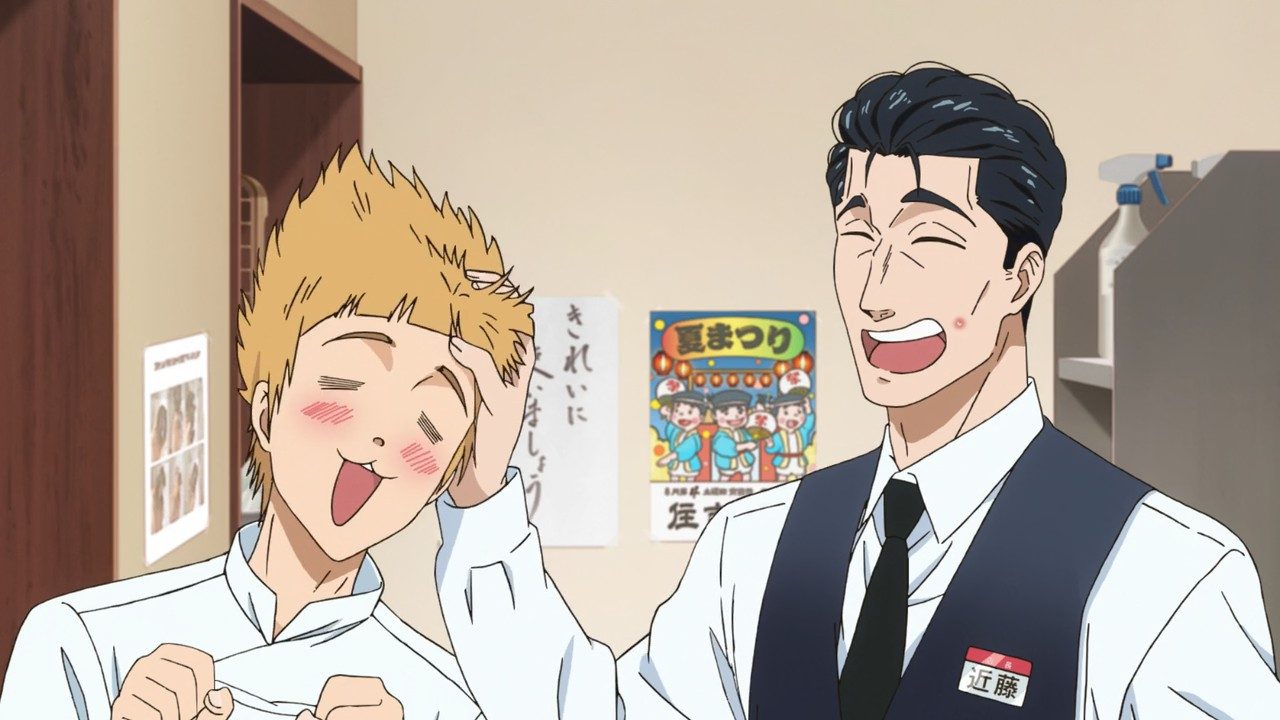
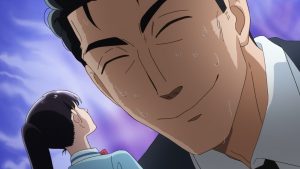
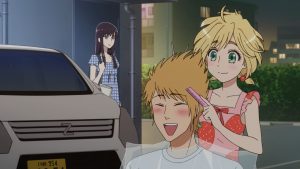
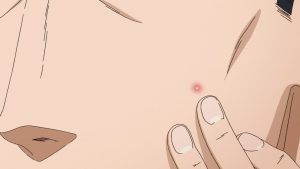
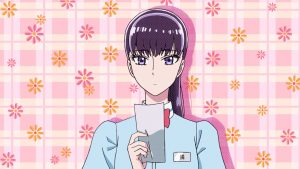
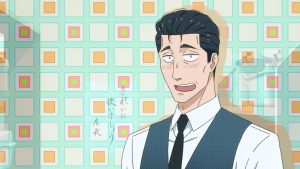

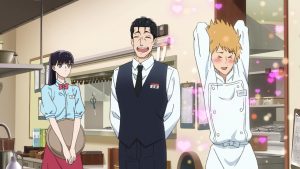

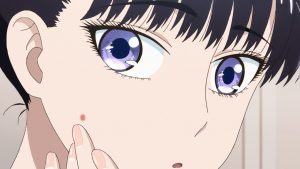

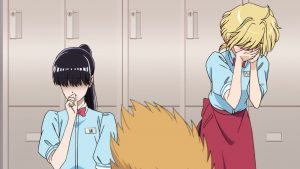

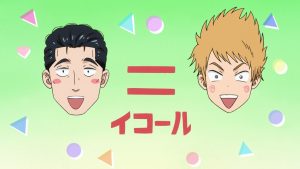


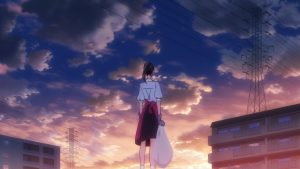
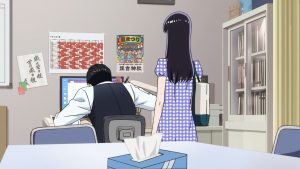
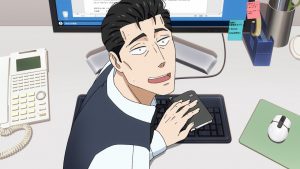



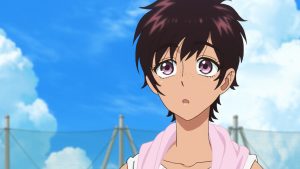



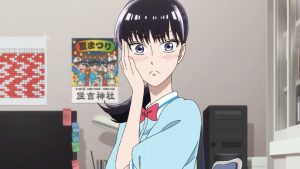
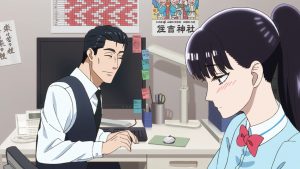





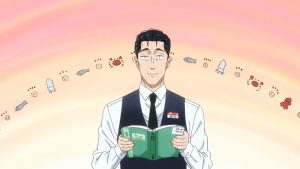

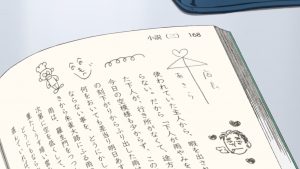
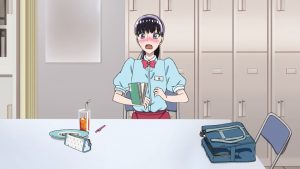
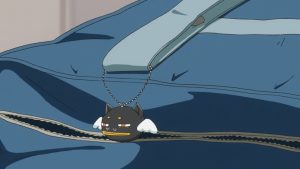





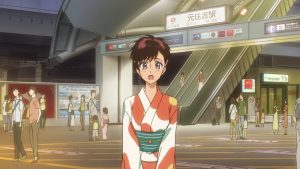

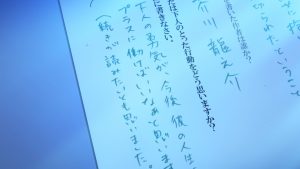
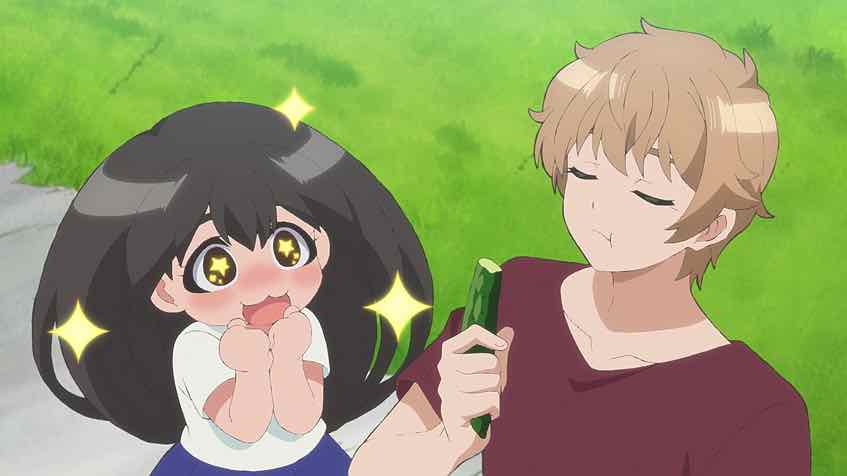
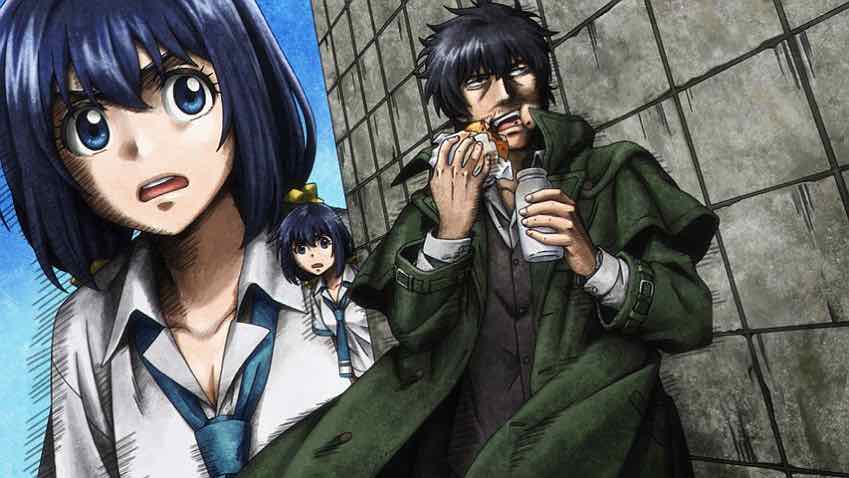
Snowball
March 2, 2018 at 2:27 amI have always ranked this show no less than great since the first episode. It’s really tastefully done with perfect stylistic choices and art direction. The ending of this episode was particularly impactful when Akira decides to go to the festival with Haruka.
Mayuf
March 2, 2018 at 4:11 amThanks admin for share anime 🙂
Dein
March 2, 2018 at 7:26 amThat’s a great point about pacing – the show feels so natural and well-rounded on an episode to episode basis, I didn’t even realize there aren’t any episodes I’d consider to be weak links, filler or dull compared to others. I still have no idea how any of this would end, but the shows spotless streak leaves plenty of hope for a quality finale.
P.S. Enzo, how excited are you for S3 of Chihaya? I’ve avoided reading the manga all these years because I love the anime’s presentation too much, but I’ve read quite a few comments of people saying there’s a notable drop in quality in the later chapters.
Guardian Enzo
March 2, 2018 at 7:37 amTrepidatious. My relationship with the manga is love-hate at this point. I feel as if an old love who I know was bad for me has told me they want to get back together.
Dein
March 2, 2018 at 8:33 amHah, that’s an interesting way to look at it! It definitely doesn’t sound promising, but I’ll try to stay positive.
Guardian Enzo
March 2, 2018 at 9:57 amOn the plus side, there’s an arc not long after S2 ends that I consider one of the best in the entire manga – really looking forward to seeing it animated. But I don’t think it’s a coincidence that it doesn’t center on one of the three central characters. That’s where Suetsugu’s annoying habits are starting to become repetitive for me.
Sam
March 2, 2018 at 4:03 pmWell looks like this adaptation is doing fine; it was one of the few mangas that I thought might be good, transitioning to anime. It’s the only one I am watching this season btw. The same could be said about Mahoutsukai no Yome, but I don’t really keep up with it, either manga or anime.
There are a few mangas that yet to be picked up for the adaptation I sort of track and this was one of them. Others being stuff like Machida-kun no Sekai, Hinamatsuri, Dorohedoro, Dungeon Meshi, Fumetsu no Anata e, etc (Probably only Dungeon Meshi might get picked up, besides upcoming Hinamatsuri).
I am also looking forwards to Hinamatsuri adaptation but as it’s a gag manga, it may not do so well like Tsurezure Children – while not that great to begin with, adaptation was a dud IMO. While Hinamatsuri is much better (i.e. funnier and a different type of humor), it’s always unlikely that transition works as well for comedy than drama.
Anyway I digress, just stopped by to comment that so far, so good for this adaptation. 🙂
justfun
March 2, 2018 at 4:36 pmAs much as I appreciate the quality of the show, I’m still annoyed by its initial constellation. For me, all the awkward moments are still there that make me think of the show as a self-insert fantasy for middle-aged man wishing to be adored by a teenage girl. The clumsiness of the manager and the many attractive shots of our main female protagonist wouldn’t bother me in other shows, but here they just remind me of the problematic aspects all the time. It does not help that there is no real change in the relationship between Akira and the manager in regards to its romantic angle.
Kay
March 2, 2018 at 6:51 pmMaybe the awkward and cringing moments are there purposefully to mindfully connect to the viewers. Since without them then it would mean the vast age gap is socially acceptable and part of the norm, and in which case it wouldn’t be as an interesting plot per se.
Kay
March 2, 2018 at 6:53 pmGreat review on this Enzo! Having you articulating in such poetic manner truly enriches the watching experience of the episode (and the series, for that matter)!!!
Guardian Enzo
March 2, 2018 at 7:12 pmThanks, Kay – this one is a fun series to write about. It inspires a lot of consideration, and those are always the best shows to cover.
Kay
March 2, 2018 at 7:35 pmI agree and please keep it up!
It’s amazing how subtlety can speak so loudly with this series, down to the last moment with Haruka smiling just a second before her face goes off the screen with Akira leading her into the festival. The smile is a way to say ALL THAT efforts she made during episode 6 was beautifully returned in kind.